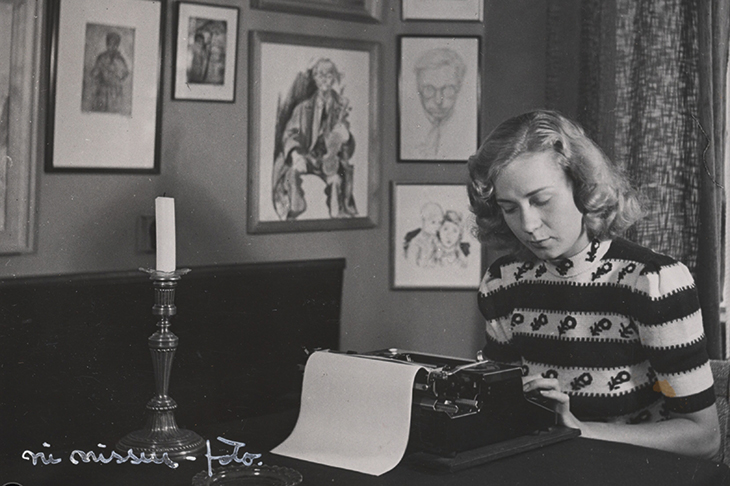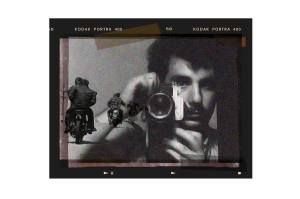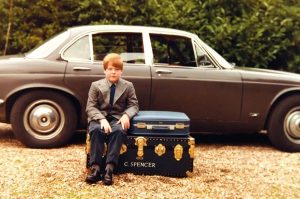Pick up a Penguin Classic from a cult Danish author who ‘struggled with alcohol and drug abuse’ and took her own life aged 58, and you may have one or two prior expectations. They will probably not include a flirtatious dinner with an enthralled Evelyn Waugh (‘so attentive and kind’) in a Copenhagen restaurant so quiet that ‘we could hear the thumping of ships’ motors far out on the water’. Tove Ditlevsen and the ‘vibrant, youthful’ Waugh have their evening spoiled when her third husband — a crazy, drug-pushing medic — turns up in his motorcycle leathers to drag Tove away for her bedtime injection, plus a bout of rougher than usual sex that leaves her spaced-out, ‘limp and blissful’.
The author of Vile Bodies himself might have composed this scene from the late 1940s, when Ditlevsen (born 1917) had already published several acclaimed volumes of poetry and fiction. Both fêted as a literary prodigy in Denmark and derided as a circus freak, the slum-girl superstar had become hopelessly addicted to pethidine and methadone. For all her celebrity, she felt for years that ‘no price was too high to be able to keep away intolerable real life.’
Wrenching sadness and pitch-dark comedy regularly partner her swift progress from a cramped Copenhagen tenement to literary fame. Ditlevsen published these three compact memoirs between 1967 and 1971. They capture the naivety, terror and rapture of her early life across a fast-changing palette of prose colors. The tones darken from her quizzical interrogation of adult follies in Childhood through the satirical larkiness of Youth to the junkie melo-drama of Dependency. Tiina Nunnally’s graceful, witty English versions of the first two volumes date from the mid 1980s; Michael Favala Goldman has now translated the more sombre and introspective third.
Little Tove feels herself ‘a foreigner in this world’, a gangly oddball accidentally dropped with her gruff socialist dad (a stoker, often unemployed), her inscrutable maidservant mother, ‘full of secret thoughts I would never know’, and cheerfully hapless brother Edvin. With her penniless family barely surviving the interwar decades on the fringe of the Copenhagen working class, Tove must hope for nothing better than marriage to a ‘stable skilled worker’ who doesn’t booze too much. Instead, she reads and writes, thinks and observes, gathering enamel-bright memories of childhood into a ‘library of the soul’ she will browse over a creative lifetime.
In Youth, the teenage wonder tangles with a succession of creepy male mentors, from aesthetic Mr Krogh in his silk dressing-gown to the pudgy, oily editor Viggo F. Møller, with his green suits and green wallpaper. These cut-price Svengalis pretend to guide her down the ‘dark and twisting roads’ that lead to the literary life. Meanwhile, in a string of dead-end office jobs skewered with a comic relish Alan Bennett might envy, she makes extra cash by composing ditties for birthdays, promotions, funerals and so on. Want a rhyme for ‘Sven Åge’? Try ‘Boa, Noah, protozoa, Balboa’. She also endures a Nazi landlady, with a picture of Hitler on the wall, who thinks the beloved Führer’s oratory ‘goes right through your skin like a steambath’.
Ditlevsen can pivot from hilarity to heartbreak in a trice. Neither the ‘miracle’ of published volumes nor the adventures of sex can dent her mortifying sense of a thick veil ‘between myself and reality’. Literature liberates but shackles her. She comes to believe ‘the only thing I’m good for… is forming sentences’.
Motherhood and serial marriage — first to sebaceous Viggo F., next to posh, puppyish Ebbe, then to druggie doctor Carl, worst of her sinister but pitiful manipulators — fail to halt the slide into addiction. Everyday life between shots seems ‘grey, slimy, ugly’. Eventually, after sulfurous scenes in rehab, another eager swain — Victor, with his ‘disheveled demonic vitality’ — turns out to be not another parasite but a true friend. Her ‘longing’ for oblivion will persist, ‘like rot in a tree’. Tove may forever feel as ‘scruffy, confused and alone’ as the stray mutts she watches as a girl. But her aghast scrutiny of hostile reality will also yield books as sharp, tough and tender as these.
This article was originally published in The Spectator’s UK magazine. Subscribe to the US edition here.



















